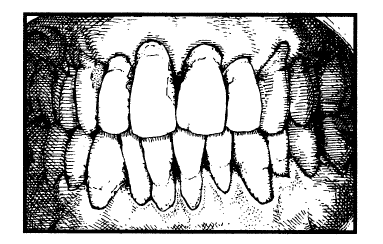Bleeding gums
Do your gums bleed when you brush your teeth?
Bleeding around your gums is an important indication of periodontal disease and is often the first sign you may notice. Bleeding gums, as well as inflammation and irritation of the gums, may also signal other medical problems, so do not ignore these signs. Seek a professional opinion.
Such bleeding gums also can be a result of Gum Disease Receding gums the gum tissue drying out. This can occur if you wear braces or have other problems that keep your lips from closing over your teeth. Allergies may block the nasal passages, leaving you no choice but to breathe through your mouth. The result of mouth breathing, rather than breathing through your nose with your mouth closed, may be gingivitis. An open mouth can cause the tissue to dry out and become loose and irritated. Or, if you have allergies and your saliva has a lot of excess bacteria and mucous, the fragile gum tissue can become infected. People who suffer from postnasal drip have a great deal of mucus in the saliva, and this causes irritated gums.
Gum abscesses. A gum abscess can be another sign of gum disease. If an area of your mouth appears to have a swelling or a lump above the tooth, then you may well have a gum abscess. The invasive bacteria within the abscess will eat away at the supportive bone. The onset of gum disease can begin with just one abscess on one tooth. Bacteria will eat away at the bone surrounding the tooth, resulting in less support to the tooth and ultimately in tooth loss if not properly cared for. An abscess does not necessarily have pain associated with it, but you may have an additional problem originating in the nerve, which will cause pain.

